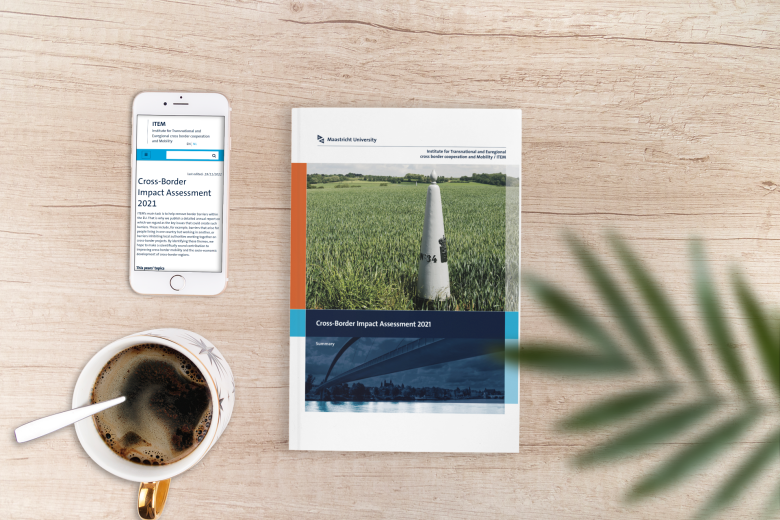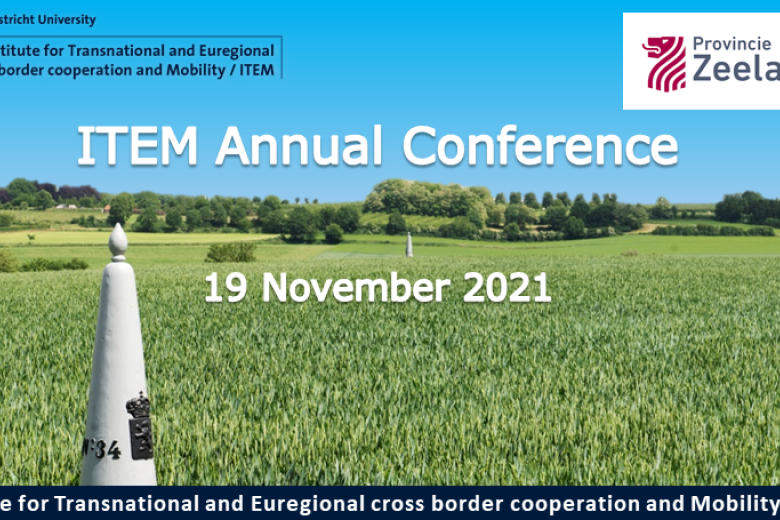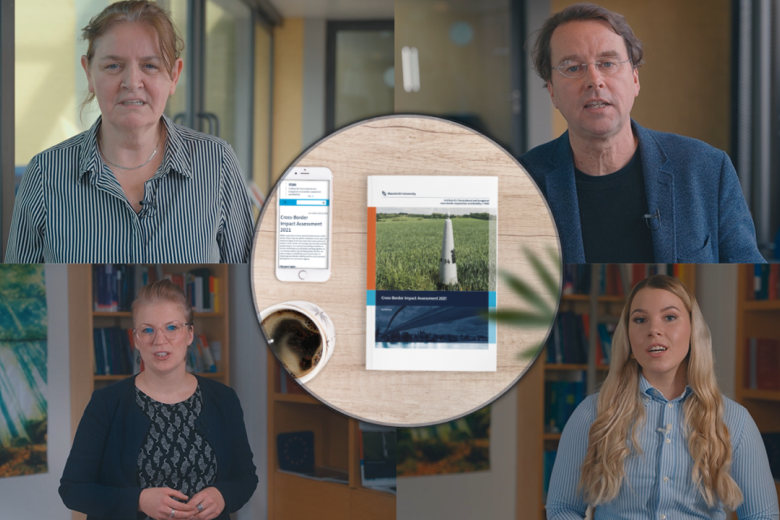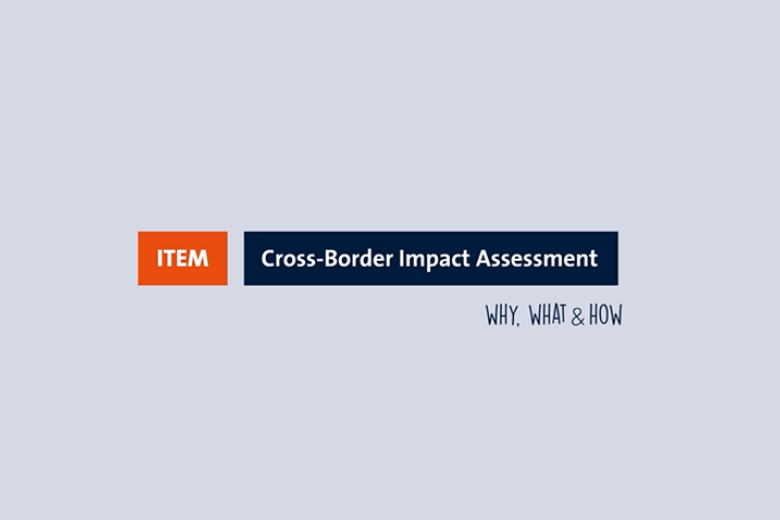Recap ITEM Annual Conference 2021: Empowering border regions - More than ever?
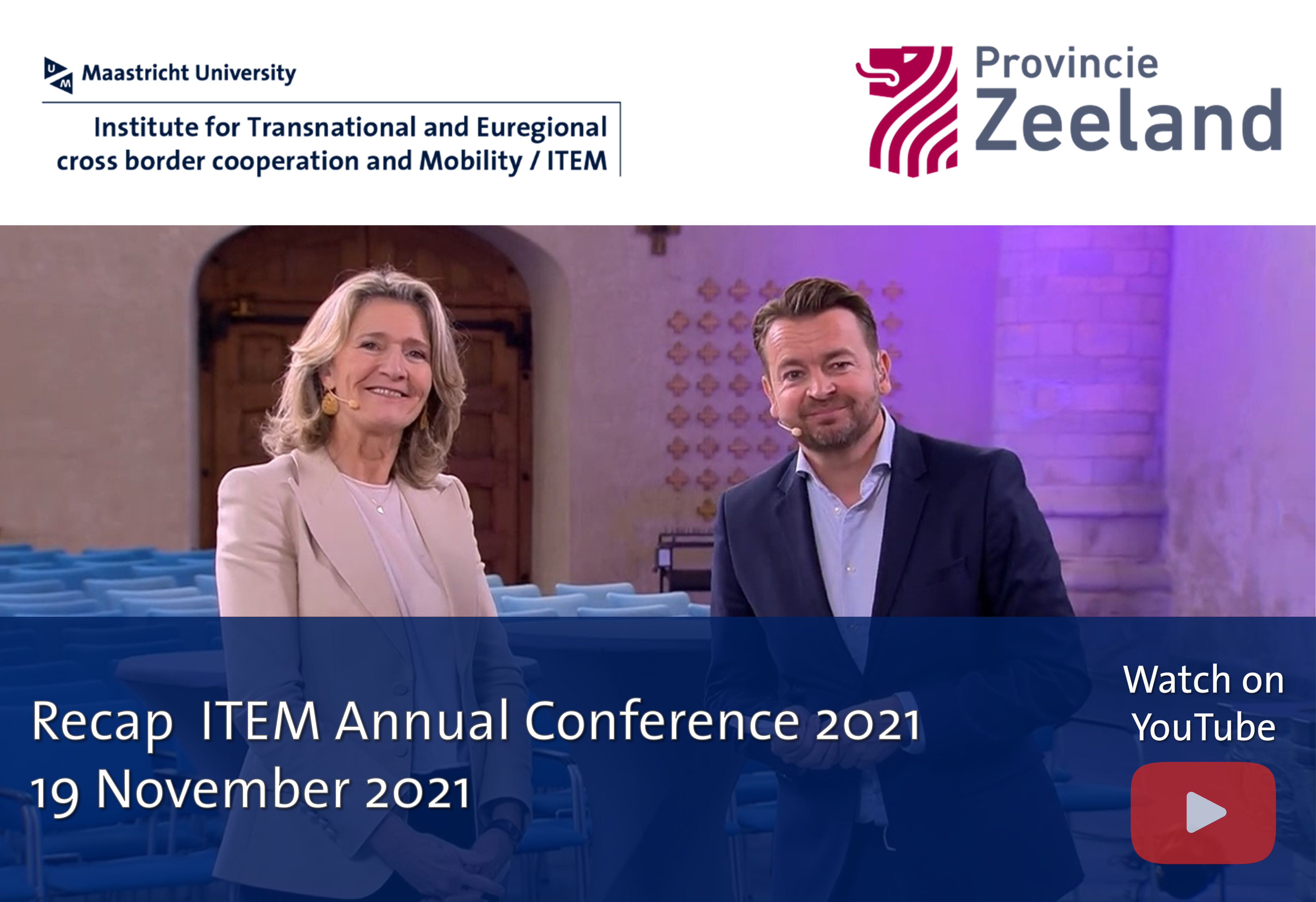
The importance of cross-border cooperation manifests itself more than ever during the COVID-19 pandemic. Multi-level governance is the foundation for taking the next steps: i.e. seeking each other out and fostering relationships at all levels, in administration, politics and everyday practice. This became clear during the ITEM Annual Conference on 19 November 2021. That focused on the lessons learned, the opportunities and challenges of cross-border cooperation, with particular attention to the areas of cross-border healthcare and security, as well as the topic of working from home across borders.
The Donner-Berx Administrative Working Group's ‘Latest advice on steering cross-border cooperation’ has been the cornerstone of the conference. It highlights the importance of incorporating local and (eu)regional networks, and of drawing up a political-administrative framework. In this framework, the legal power to deviate from existing legislation and regulations ought to be created at governmental level. One of the most important conclusions is that in the approach to border obstacles, the Dutch and Flemish governments – together with the competent administrations of the various (eu)regional layers and within the framework of the Benelux Union – can, and should, do more for border regions.
The pandemic, too, clearly shows the importance of mutual cross-border networks in order to achieve operational coordination, for which a roadmap for a crisis management does not work. Cooperation should rather be based on a well-maintained relationship founded on agreements, which are reflected in a “border land agenda” (grenslandagenda). A lot is being done in the area of cross-border cooperation – nevertheless, based on the advice by Donner, steps need to be taken to improve the coherence and transparency of policies. Notably, data plays a key role in achieving these aspirations, particularly in the assessment and interpretation of border effects and cross-border impact. Data collection is still characterised by a 'country-by-country' approach, whereas the focus should rather be integral on (cross-)border regions. That would make it possible to estimate the magnitude of some of the problems surrounding borders. In this way, data could help translate the need for cross-border cooperation into the political domain, in order to gain strength there.
In order to recognise the position of the “border region resident” and the challenges these residents encounter at said borders, it is important to clearly identify the problems, solve them, and to try preventing them from happening in the first place as much as possible. ITEM's Cross-Border Impact Assessment methodology forms the basis for identifying these border obstacles. This year's research dossiers have been presented during the Annual Conference. A particular focus was on the discussion on the future of working from home. Now that it is clear that working from home is here to stay – even in post-COVID times – and the temporary exemptions are going to expire at the end of December, urgent action is much needed. In the 'homeworking-dossier', ITEM put forward recommendations to improve the suitability of current legislation on working from home across borders in the fields of taxation and social security.
In the approach to border obstacles, the Benelux – as the cradle of the EU – can be used as a testing ground. Because of its nature as an intergovernmental partnership, the Benelux Union has its own set of instruments, e.g. treaties and decisions. Nevertheless, the difficulty remains that countries will have to agree with each other. Although the willingness to cooperate does exist, national governments are still sticking to their own systems, as is evident in the aforementioned ‘homeworking dossier’. The advice by Donner offers interesting pointers for this, too, such as the possibility of deviating from national legislation.
Tackling border obstacles requires greater commitment to knowledge, expertise, support, joint strategies and cross-border cooperation. During the ITEM Annual Conference, it became clear that the COVID-19 pandemic served as a magnifying glass in order to put cross-border cooperation higher on the agenda. This is necessary in order to bring about the changes from those lessons learned, and meet future challenges. Now there is new momentum; we see increasing attention for the regional voices in Brussels and The Hague. With Donner’s advice, that topic is effectively being pushed further on the agenda, so that governance will be stepping up its striking force. Eventually, it is up to the governments to properly address those challenges (al)together, by using that striking force – and, recognize that cross-border data can help to translate that striking force into action.
Curious about the topics discussed during the ITEM Annual Conference?
Take a look at the recap:
Also read
-
ITEM Cross-Border Impact Assessment 2021 published
Due to the Corona crisis, also many cross-border workers are forced to work in their home country. They have been asked not to cross the border to come to their office situated in the neighbouring country. At the moment, this is only possible because the Dutch, Belgian and German governments have...